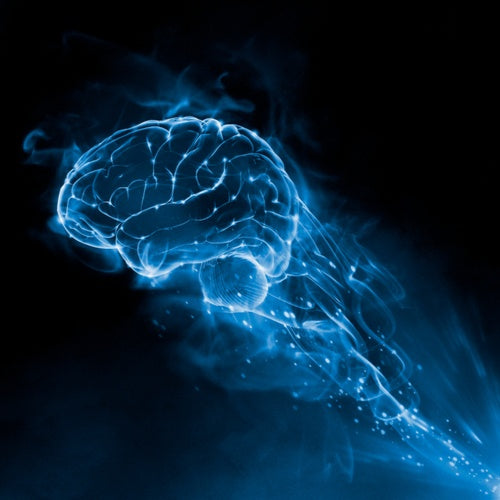Introduction
Do you feel like you are running on empty and can’t find the time to refuel and recharge? Have you been in a state of high stress for a significant period of time because work keeps heaping things on your plate, finances are stretched or even your family members are at each other’s’ throats? These feelings of being overwhelmed is an epidemic in our society and if we don’t learn how to manage our stress better, it can turn into burnout. And not only does this affect our mental and emotional health, it can also affect our physical health too.
Whilst it is absolutely essential to have some lifestyle strategies in place to help us cope with stress whether it is exercising, getting out in nature, meditation and yoga or journaling, there are also some amazing herbal remedies that can help increase our stress tolerance. These herbs are called adaptogens.
What are Adaptogens?
Adaptogen is a term used to describe a group of specific traditional herbs that have been used in natural healing modalities such as Traditional Chinese Medicine and Western Herbalism for centuries. The word ‘adaptogen’ is derived from the Latin word adaptare which means to adapt or adjust. They are plants that have the ability to help us adapt and adjust to the various physical, chemical, environmental and biological stressors we are exposed to on a daily basis. They also help to increase physical performance, combat fatigue and enhance mental function and mood. By definition, adaptogens are harmless, have minimal side effects and non-specific actions that positively affect overall function, improving resilience in many ways. It’s not surprising that adaptogens are now the most popular herbs currently prescribed by naturopaths and herbalists today.
What is Stress and How Does it Affect our Body?
In order to understand how adaptogens work, it is first important that we understand what stress is and what happens to and in our body when we are stressed.
When we think of stress, we often associate it with the stress hormone cortisol or our adrenals and the “fight or flight” response. However, stress is more than just those feelings that make the heart race and our brain frazzled. Stress can also be environmental such as toxicity in the water that we drink or pollution in the air that we breathe, biological such as a nutrient deficiency that places greater pressure on our bodies or even physical, like a stubbed toe.
Regardless of the stress, our body still produces hormones just in case that small stressor poses a real physical threat to our life. Fortunately for us, we have our very own built-in hormonal messaging system that helps to switch on the “fight or flight” response throughout the whole body. This system is known as the Hypothalamic-Pituitary-Adrenal (HPA) axis. It is made up of our hypothalamus (the inbox of the brain or the part of our brain that receives stimuli), the pituitary gland (the hormonal messenger), and the adrenal gland which is responsible for releasing hormones, mainly our stress hormones like cortisol.
Cortisol is released in response to both real and perceived threats whether it is being chased by a lion or worrying over our finances. Under the direction of signals from the brain, the body frees up stored sugars for a burst of energy, and increases our heart rate and blood pressure in response to the stress. When the stress is more chronic and the signal for stress doesn’t “switch off”, the body adapts to protect itself by lowering cortisol levels as long-term elevated cortisol suppresses immune function. This is termed adrenal burnout and accompanying this are symptoms such as lowered immunity, weight gain, brain fog, fatigue and menstrual irregularities.

How Do Adaptogens Work?
Each adaptogenic herb is unique and helps to support this stress response in different ways. They do for your adrenal glands what exercise does for the muscles by interacting with the hypothalamic-pituitary-adrenal (HPA) axis and the sympathoadrenal system, tweaking hormone production and physiological responses to ensure the body functions optimally. Adaptogens help the adrenal glands shut down more quickly and increase the body’s receptibility to stress. In cases where stress is prolonged, adaptogens help the adrenals reserve their resources by reducing the amount of hormones they release.
Animal studies and studies on isolated neuronal cells have revealed the adaptogens exhibit neuroprotective, anti-fatigue, anti-depressive, anxiolytic, nootropic and CNS stimulating activity. Some adaptogens may help to keep our reproductive hormones in check by supporting the delicate balance of oestrogen and testosterone whilst under stress. Some help our body cope with mental stress as well as supporting regular thyroid hormone balance. Others still may help to support and protect our liver from toxins that may also increase the physiological effects of stress on our bodies.
Benefits of Taking Adaptogens
We already know that each adaptogenic herb is unique but on the whole, adaptogens help your body handle stress. Whilst some have antioxidant activity which protects against free radical damage, others may also be helpful in cardiovascular diseases, diabetes, immune-compromised conditions and various psychological and neurological conditions. But the reason they are classed as adaptogens is because they all help support us in the following ways:
- Protect neurons from damage
- Reduce fatigue leading to higher work capacity
- Antidepressant
- Reduce anxiety
- Increase cognition and ability to learn
- Increase resistance to stressful situations
- Improve recovery time from physical activity
Do they Have any Side Effects?
While any plant can be allergenic or cause gastrointestinal upset for some people, there is little evidence to suggest that adaptogens have any serious side effects. In fact, research has shown that some adaptogens are effective in ameliorating the side effects from neurotropic and other sedating medications. Keep in mind though, it is possible that some adaptogens could interfere with medications and some are not recommended for people with certain conditions. Rhodiola, for example, may cause mild episodes of dizziness, dry mouth, sleep problems or jitteriness due to its mild stimulant-type effect. Astragalus is a great immune-stimulating herb and should thus not be used by people who take immunosuppressant drugs. Pregnant women or women who are breastfeeding should avoid Ashwagandha, Schisandra and Holy Basil.
Top Adaptogenic Herbs
-
Rhodiola rosea (Rhodiola)
Rhodiola is one of the best herbs for fatigue, mental or physical exhaustion. It is known to increase physical endurance and productivity and may be useful in erectile dysfunction and impotence. It’s also been shown to be useful in depression, anxiety, chronic immune deficiency, chronic fatigue syndrome, fibromyalgia and post-viral syndromes.
One review revealed Rhodiola’s involvement in the protection of brain neurons, showing potential for its use in Parkinson’s disease. In one randomised, double-blind trial, Rhodiola significantly reduced symptoms of stress-related fatigue and improved cognitive function after four weeks of repeated administration. In both healthy subjects and burnout patients expressing fatigue syndrome, it increased their mental performance and ability to concentrate. In fact, it has been reported that Rhodiola prevented exhaustion and fatigue during work requiring long intensive mental activity. To take full advantage of these benefits, it is recommended that doses should be taken in the morning or both the morning and afternoon, for at least a few days prior to a period of intense mental work and should extend for the duration of the period as well.
-
Withania somnifera (Ashwagandha)
Ashwagandha is an adaptogen used for nervous exhaustion particularly stress-induced nerous exhaustion. It is an important herb used for chronic immune deficiency, convalescence and for physical performance and insomnia. In a randomised, double-blind, placebo-controlled study, 64 participants with a history of chronic stress were given 600mg per day of high-concentration fell-spectrum extract from the root of the Ashwagandha plant. After the study period of 60 days, it was shown that the serum cortisol levels were substantially reduced in the Ashwagandha group relative to the placebo group. It was thus shown to safely and effectively improve an individual’s resistance towards stress. A 2014 systematic review also concluded that Ashwagandha significantly improved outcomes on anxiety or stress scales when compared to a variety of controls, including placebo and psychotherapy.
-
Eleutherococcus senticosus (Siberian Ginseng)
Also known as Siberian Ginseng, this herb helps to improve mental clarity and emotional stamina during stressful situations and boosts physical endurance. It also helps to improve circulation, boost mood and protect the immune system. It is used in exhaustion and poor immune function and for conditions such as chronic fatigue caused by a virus such as Epstein Barr and Cytomegalovirus. Siberian Ginseng can assist in improving an individual’s response to stress by acting directly on the hypothalamus to regulate hormones, including mineral-corticoids, glucocorticoids and reproductive hormones. It reduces excessive corticotrophin release and has also been reported to affect noradrenalin responses in the brain that assists in blunting the stress response.
-
Schisandra chinensis (Schisandra)
Schisandra is known to increase physical and mental endurance and to help with poor memory and concentration. Studies have shown its effects just after 2-10 weeks of therapy. It is also a nervine tonic to help relax, support and energise the nervous system by improving its tone, vigour and function. Schisandra is also a great liver herb and is used for acute and chronic liver disease and to combat the onslaught of toxins we are exposed to on a daily basis.
Several studies have reported the effectiveness of Schisandra in depressive patients and also in patients with schizophrenia. Another study reported total recovery following treatment with Schisandra where 36 patients (19 with schizophrenia; six with reactive psychosis; four with alcoholic psychosis; three with depression; and four with psychopathy) received Schisandra preparations three times daily. Total recovery was observed in patients suffering from psychosis, while no effects were seen in patients with diagnosed psychopathy. Schisandra has also been shown to be effective as an adjunct treatment with tranquilisers or antidepressants to eliminate the side effects of these drugs and allow them to be employed at optimal doses.
-
Panax ginseng (Korean Ginseng)
Korean Ginseng has been shown to improve attention and increase quality and quantity of mental work. It is also useful in high stress as it reduces cortisol levels, loss of physical stamina and fatigue. It is useful in depression, chronic immune deficiency and cardiovascular disease. In a 2019 double-blind, randomised, placebo-controlled trial, 63 participants with high stress levels were randomised to receive an orally administered, 6-week treatment with Korean Ginseng or placebo.15
The individuals who received Korean Ginseng experienced significant decreases in epinephrine levels and catecholamines which may contribute to stabilisation of the nervous system and neural membranes. It also improved cognition. Korean Ginseng must be used with caution however as overstimulation may occur. It is contraindicated in patients with high blood pressure, insomnia and in pregnancy. It should also be avoided with certain medications such as warfarin and MAOI antidepressants such as phenelzine. Overuse may result in headache, insomnia and palpitations.
-
Ocimum sanctum (Holy Basil)
Holy Basil improves mental performance, cognition and concentration. It aids the mind and body to adapt to and cope with a wide range of physical, emotional and chemical stressors. It has also been shown to stimulate immune function and assist with cardiovascular and metabolic markers such as high blood pressure, blood lipids and blood sugar levels. In a 2017 systematic review, it was found that three clinical studies reported significant reductions in anxiety and stress levels with higher doses over a long time period. Two studies reported reductions of 31.6%-39% in overall stress-related symptoms in patients with psychosomatic problems compared to a control group.
-
Centella asiatica (Gotu Kola)
Gotu Kola is similar to holy basil and the two work well together. It is well known for its adaptogenic properties especially when it comes to brain and nervous system support and studies have shown that gotu kola can help relieve symptoms of anxiety, improve memory and boost circulation. It also exhibits sedative and anxiolytic properties as well as antidepressant effects.













What Do You Think? Comment Below: